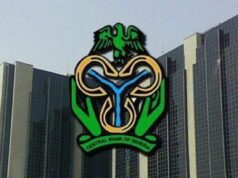MON, JAN 13 2020-theG&BJournal-President Muhammadu Buhari has signed into law the Finance Bill 2019 introduced alongside the 2020 budget.
The Bill was introduced to fast track reform of Nigeria’s tax law to align with global practices; support MSMEs in line with Nigeria’s Ease of Doing Business reforms; incentivize investments in infrastructure and capital markets as well as raise government revenues.
‘’This is the first time, since the return of democracy in 1999, that the Federal Government Budget is accompanied by passage of a Finance Bill specially designed to support its implementation, and create a truly enabling environment for business and investment by the private sector,’’ the President said today after he signed the Bill into law.
President Buhari thanked the leadership and members of the ninth National Assembly for what he described as the ‘’hard work and support that have gone into the passage of the landmark Deep Offshore and Inland Basin PSC Amendment Bill, and the Finance Bill.’’
He said both Bills are vital to the successful implementation of the 2020 budget.
The Finance Bill 2019 has the potential to arrest the much derided double taxation impact on businesses in Nigeria. Small scale businesses with turnover of N25 million and below will no longer pay company income tax, a much welcome development among private sector stakeholders. Most importantly, the Bill will energise and encourage businesses still in incubator stage.
Implications
Taiwo Oyedele, Partner, Fiscal Policy & West Africa Tax Leader, PwC recently at the PwC executive session highlighted the implications of 2019 Finance Bill. They include;
-Excess dividend tax to apply only to untaxed distributions other than profits specifically exempted from tax and franked investment income.
-Small businesses with turnover less than N25m to be exempted from Companies Income Tax
-lower CIT rate of 20% to apply to medium-sized companies with turnover between N25m and N100m.
-Commencement and cessation rules modified to eliminate overlaps and gaps to avoid double taxation and complication during commencement.
-Minimum tax provisions amended to 0.5% of turnover and exemption only applies to small companies (less than 25m turnover), so non-resident companies will now pay minimum tax.
-Insurance companies can now carry forward tax losses indefinitely, deduct reserve for unexpired risks on time apportionment bases while special minimum tax for insurance has been abolished.
-Bonus of 2% of tax payable (medium-sized companies) and 1% for large companies for early payment of CIT.
-Introduction of thin capitalisation of 30% of EBITDA for interest deductibility. Any excess deduction can be carried forward for 5 years.
-Deemed tax presence for non-residents with respect to imported technical and management services now taxable at a final WHT rate of 10%10.
-Any expense incurred to earn exempt income now specifically disallowed as a deduction against other taxable income.
-Dividend distributed from petroleum profits now to attract 10% withholding tax.
-Banks to request for Tax Identification Number (TIN) before opening bank accounts for individuals, while existing account holders must provide their TIN to continue operating their accounts.
-Email correspondences to be recognised for communicating with tax authorities. The meaning of supply and definition of goods and services has been expanded to cover intangible items other than land, among others.
-Specific requirement for VAT deregistration for discontinuing operations16. Introduction of VAT reverse charge on imported services17.
-VAT registration threshold of N25 million turnover in a calendar year to be introduced1.
-Remittance of VAT now to be on cash basis, that is, difference between output VAT collected and input VAT paid in the preceding month.
-Compensation for loss of employment below N10m to be exempted from CGT.
-Stamp duty on bank transfer to apply only on amount from N10,000 and above. Transfers between the same owner’s accounts in the same bank also to be exempt.
In all, the Bill is geared towards consolidating the macroeconomic effects on the economy and help reduce budget deficits. It also could help ameliorate the challenges imposed by Nigeria’s complex tax system and revenue challenge.
twitter:@theGBJournal|email: info@govandbusinessjournal.com.ng|
Subscribe
Login
0 Comments
Oldest









